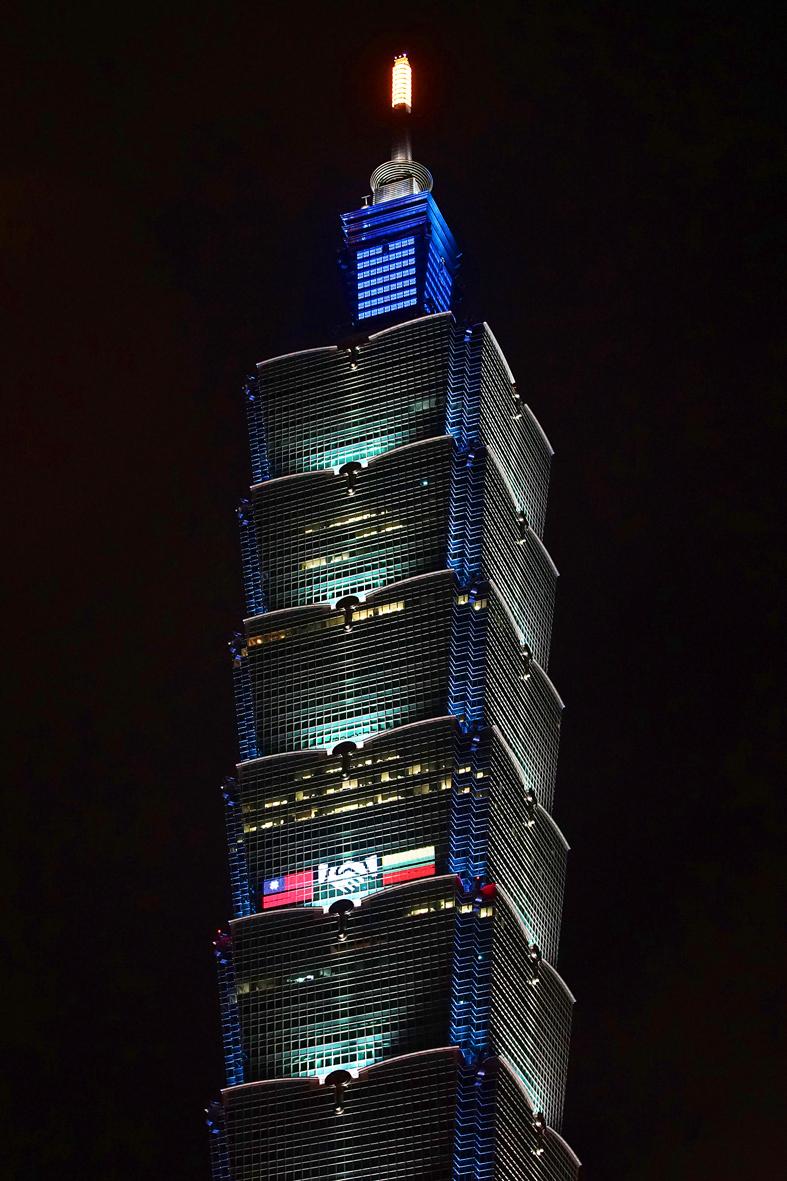Lithuania’s plans to establish a trade office in Taiwan are part of its efforts to diversify its markets and expand its partners in Asia, Lithuanian Minister of the Economy and Innovation Ausrine Armonaite said, as China increases pressure on the Baltic country.
Armonaite made the remarks in a written response to a request for an interview by the Central News Agency, adding that the head of the trade office in Taiwan would be a career official employed by the ministry.
Like the EU, Lithuania respects China’s domestic and foreign policies, Armonaite said in response to Beijing’s actions against Lithuania for seeking to establish ties with Taiwan.

Photo: CNA
The spat erupted last month when Taiwan said it was establishing an office in Vilnius using the name “Taiwan” instead of “Taipei” — an act Beijing interpreted as a diplomatic insult.
Beijing on Tuesday last week recalled Ambassador Shen Zhifei (申知非) from Vilnius, and the following day demanded that Lithuanian Ambassador to China Diana Mickeviciene leave the country.
Armonaite said the EU has strong relations with Taiwan — as it is the EU’s sixth-largest trade partner in Asia, while the EU is the fifth-largest market for Taiwan — and Lithuania looks forward to following other EU members in establishing a trade office in Taiwan.
Lithuania pursues mutually beneficially economic relationships with all countries, “including China,” but bilateral ties must remain equal, she said.
Lithuania would become the 67th country to establish a trade office in Taiwan.
“We will not abandon plans to do so,” she said, adding that she hopes the office can foster bilateral collaborations, as well as attract Taiwanese investors to Lithuania, especially in high-tech, innovative and higher-value-added industries.
Lithuania’s strengths are in its laser technology, 90 percent of which is exported to clients such as NASA in the US, the European Organization for Nuclear Research and other major companies, such as IBM, Armonaite said.
Many Taiwanese firms also employ laser technology developed by Lithuania, she said, adding that Vilnius is also interested in collaborating with Taiwan in the information technology, finance, automation and biotechnology industries.

CHIPMAKING INVESTMENT: J.W. Kuo told legislators that Department of Investment Review approval would be needed were Washington to seek a TSMC board seat Minister of Economic Affairs J.W. Kuo (郭智輝) yesterday said he received information about a possible US government investment in Taiwan Semiconductor Manufacturing Co (TSMC, 台積電) and an assessment of the possible effect on the firm requires further discussion. If the US were to invest in TSMC, the plan would need to be reviewed by the Department of Investment Review, Kuo told reporters ahead of a hearing of the legislature’s Economics Committee. Kuo’s remarks came after US Secretary of Commerce Howard Lutnick on Tuesday said that the US government is looking into the federal government taking equity stakes in computer chip manufacturers that

Chinese Nationalist Party (KMT) lawmakers have declared they survived recall votes to remove them from office today, although official results are still pending as the vote counting continues. Although final tallies from the Central Election Commission (CEC) are still pending, preliminary results indicate that the recall campaigns against all seven KMT lawmakers have fallen short. As of 6:10 pm, Taichung Legislators Yen Kuan-heng (顏寬恒) and Yang Chiung-ying (楊瓊瓔), Hsinchu County Legislator Lin Szu-ming (林思銘), Nantou County Legislator Ma Wen-chun (馬文君) and New Taipei City Legislator Lo Ming-tsai (羅明才) had all announced they

POWER PLANT POLL: The TPP said the number of ‘yes’ votes showed that the energy policy should be corrected, and the KMT said the result was a win for the people’s voice The government does not rule out advanced nuclear energy generation if it meets the government’s three prerequisites, President William Lai (賴清德) said last night after the number of votes in favor of restarting a nuclear power plant outnumbered the “no” votes in a referendum yesterday. The referendum failed to pass, despite getting more “yes” votes, as the Referendum Act (公民投票法) states that the vote would only pass if the votes in favor account for more than one-fourth of the total number of eligible voters and outnumber the opposing votes. Yesterday’s referendum question was: “Do you agree that the Ma-anshan Nuclear Power Plant

Nvidia Corp CEO Jensen Huang (黃仁勳) yesterday visited Taiwan Semiconductor Manufacturing Co (TSMC, 台積電), as the chipmaker prepares for volume production of Nvidia’s next-generation artificial intelligence (AI) chips. It was Huang’s third trip to Taiwan this year, indicating that Nvidia’s supply chain is deeply connected to Taiwan. Its partners also include packager Siliconware Precision Industries Co (矽品精密) and server makers Hon Hai Precision Industry Co (鴻海精密) and Quanta Computer Inc (廣達). “My main purpose is to visit TSMC,” Huang said yesterday. “As you know, we have next-generation architecture called Rubin. Rubin is very advanced. We have now taped out six brand new